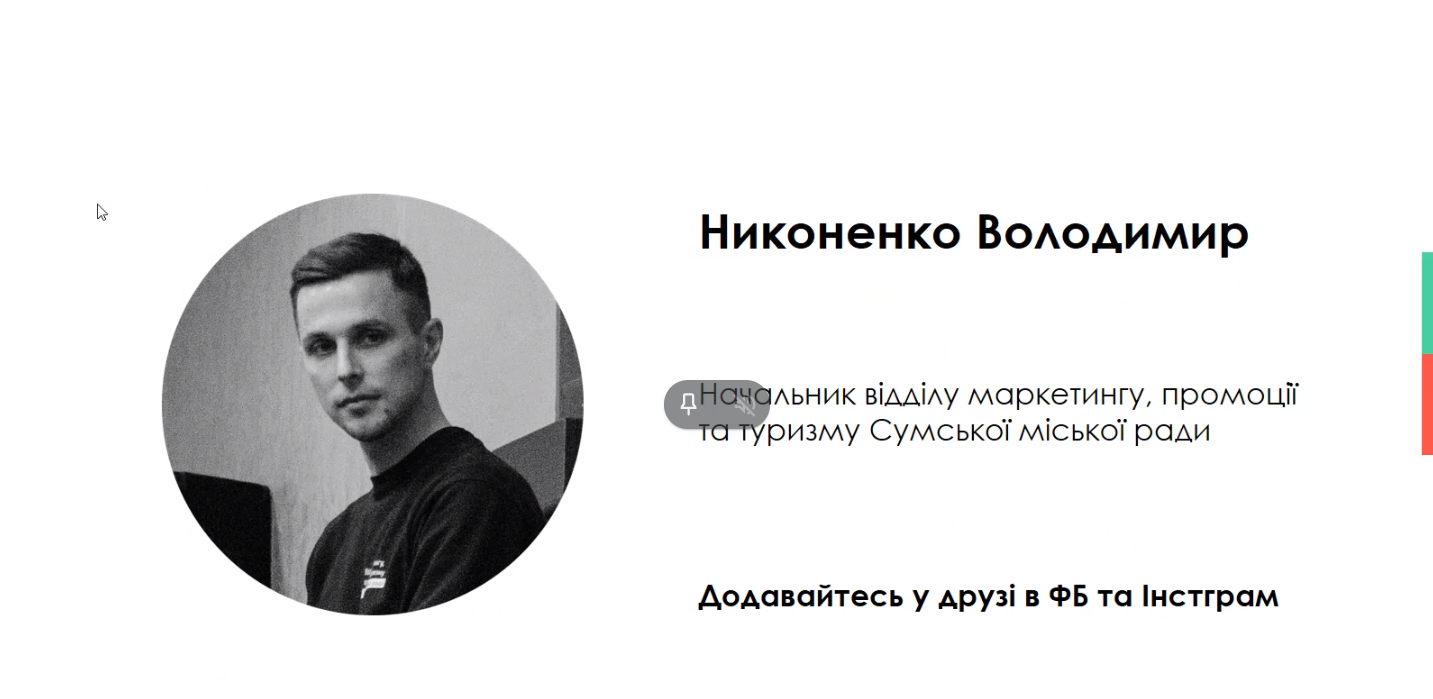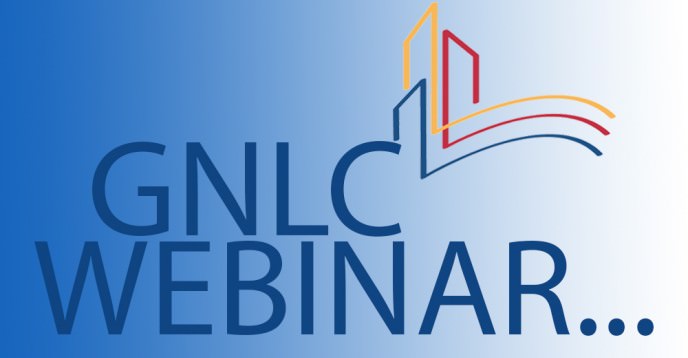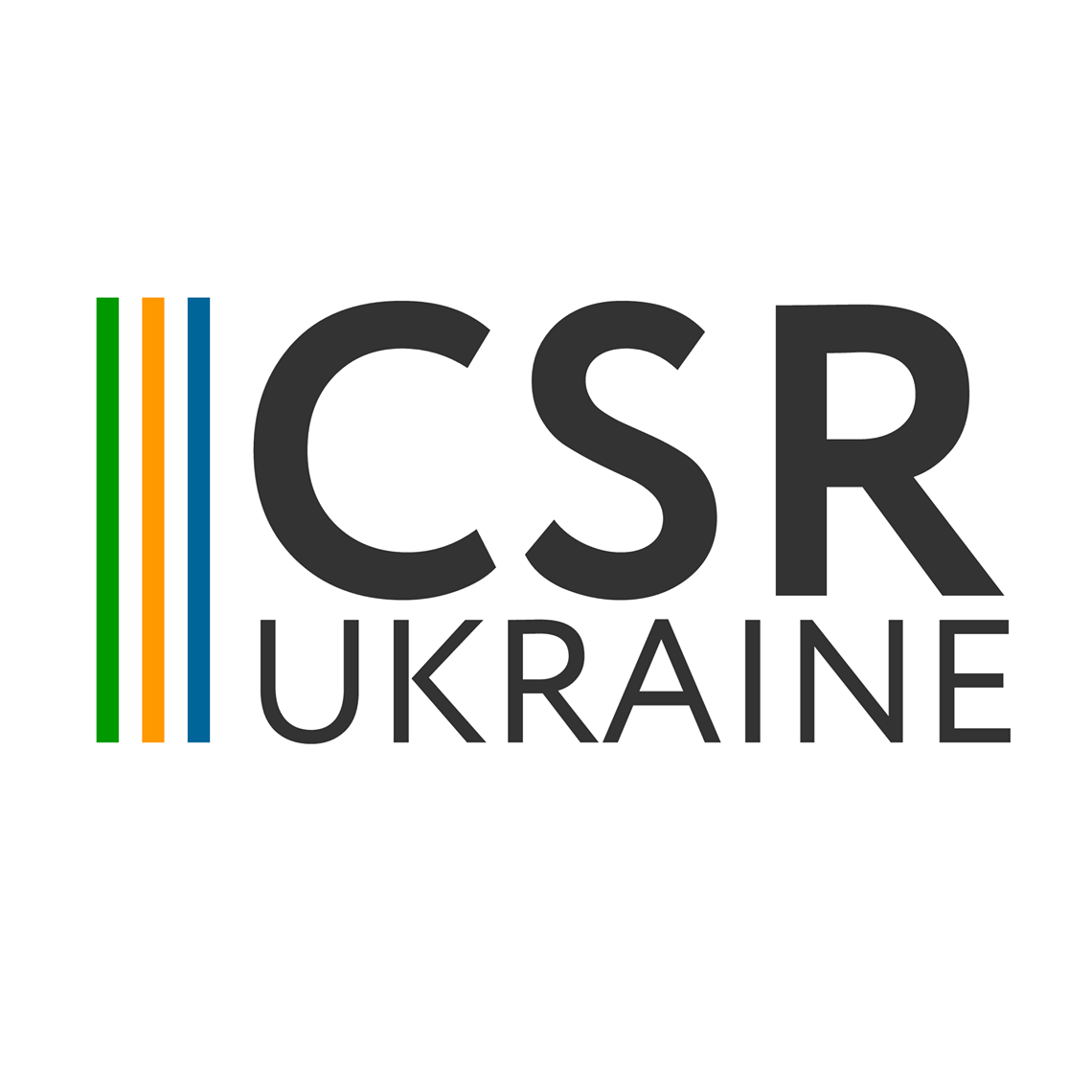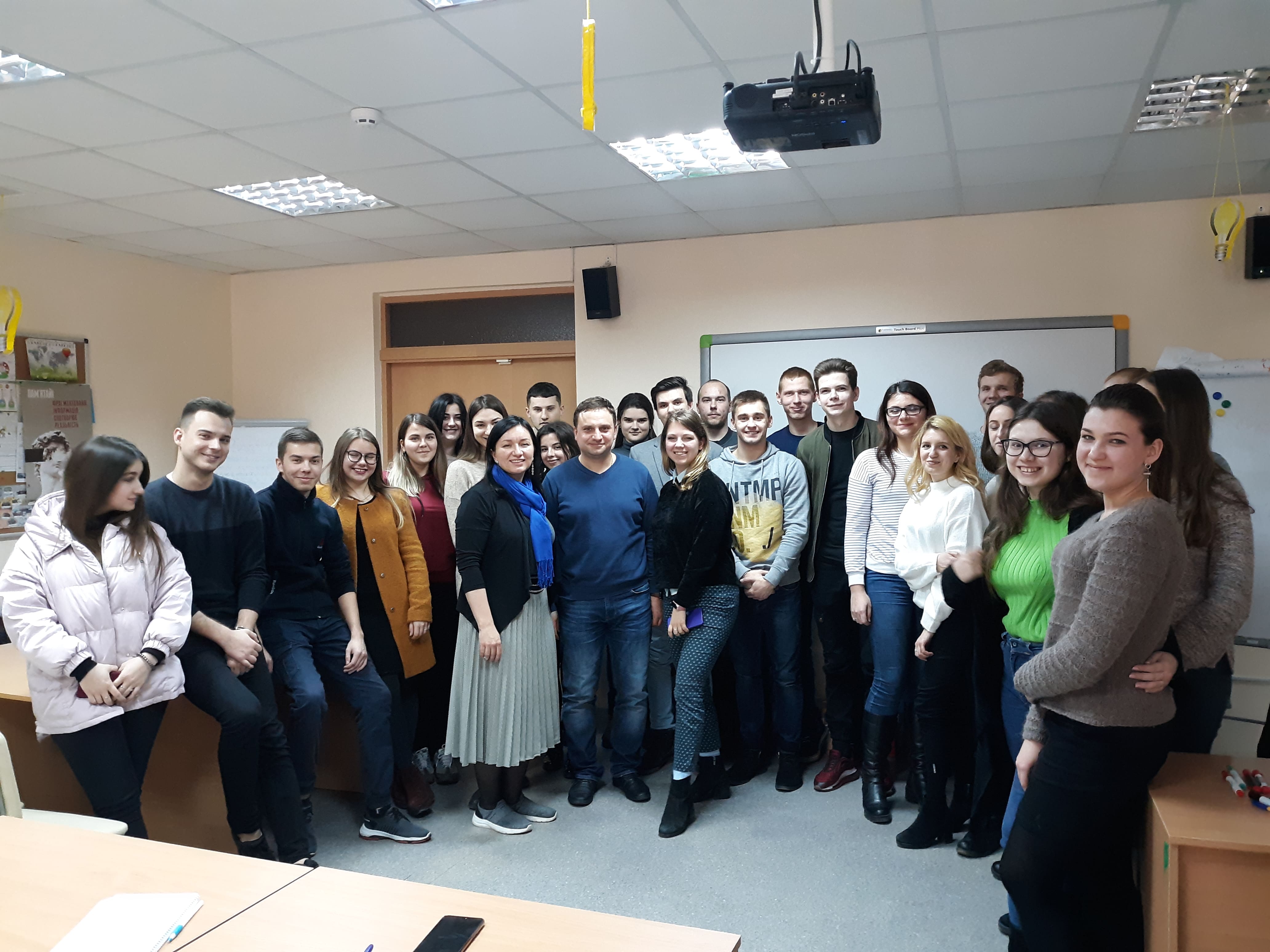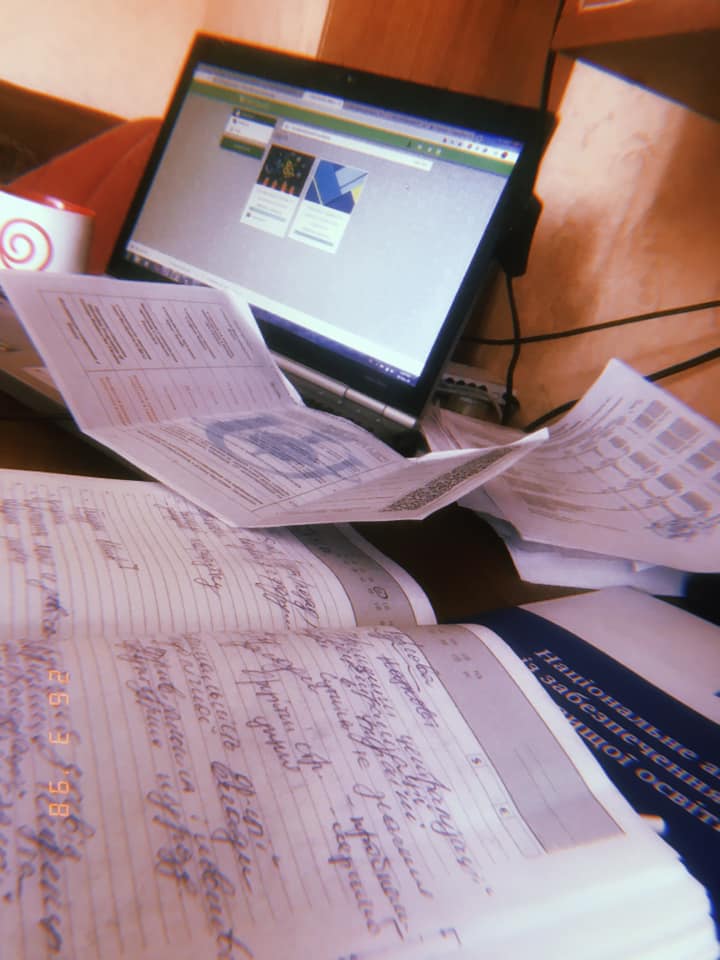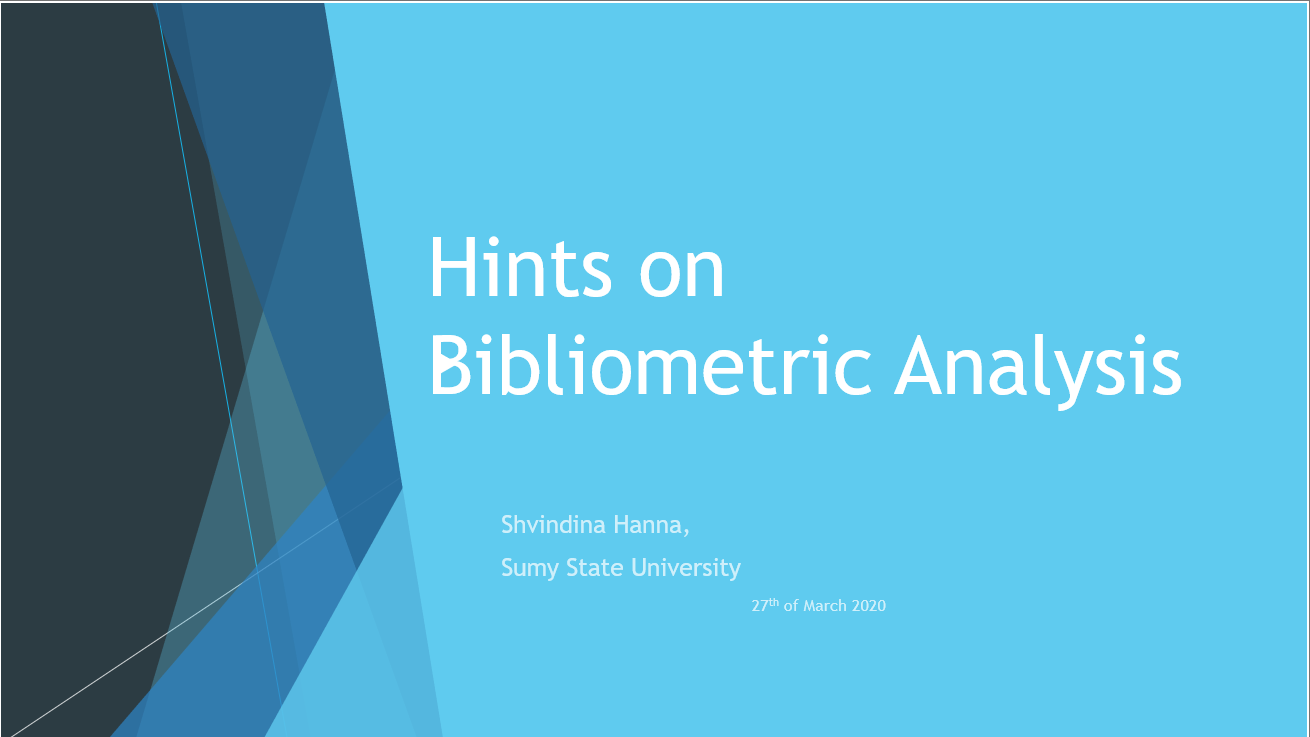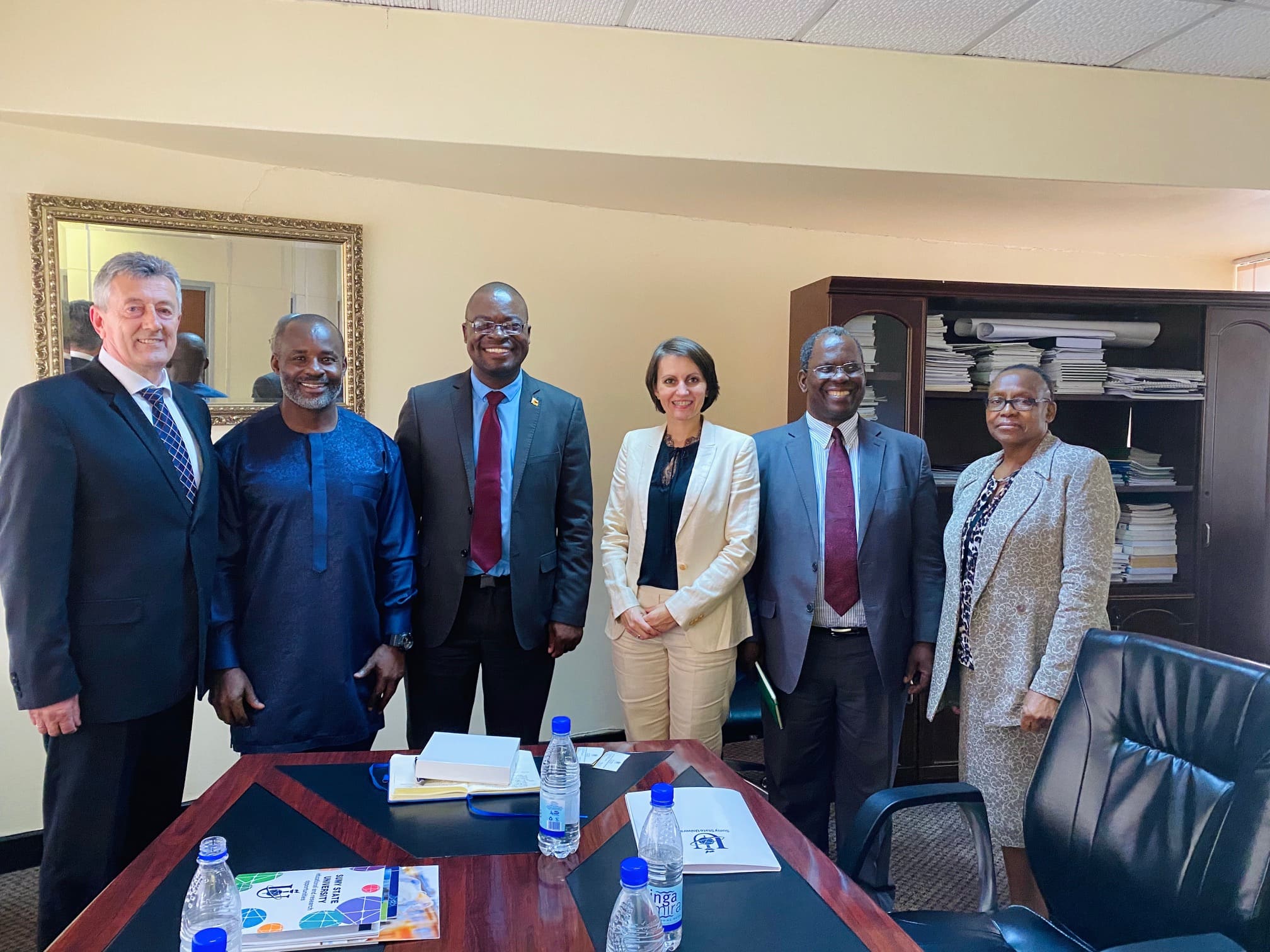 More students from Africa are paying interest of studying at SumDU and not only medical degree programs but also to study degree programs in economic field and computer science. Such a summary could be made as a result of the visit of Vice-director of ARI FEM, assistant of the Department of Management Tetyana Mayboroda to Zimbabwe and Zambia by invitation of foreign partners in the beginning of March 2020.
More students from Africa are paying interest of studying at SumDU and not only medical degree programs but also to study degree programs in economic field and computer science. Such a summary could be made as a result of the visit of Vice-director of ARI FEM, assistant of the Department of Management Tetyana Mayboroda to Zimbabwe and Zambia by invitation of foreign partners in the beginning of March 2020.
Only 2 days for each country – it was a very intensive schedule for presenting SumDU in these countries.
Zimbabwe will be remembered as one of the longest working days, which started with interview in the live morning show “Good morning, Zimbabwe” at 7:30 a.m. on national TV channel Zimbabwe Broadcasting Corporation, after which – live on radio Power FM Zimbabwe, and after that – presentations of SumDU, consultations and meetings with parents and students who paid interest to study at SumDU at the partner’s office. At the end of the day – meeting with Minister of Higher and Tertiary Education, Innovation, Science and Technology Development, Prof. A. Murwira, Permanent Secretary, Legal Advisor and other Ministry’s representatives for discussion of cooperation perspectives and search for perspective partners for SumDU among Zimbabwean universities.
Read more ...
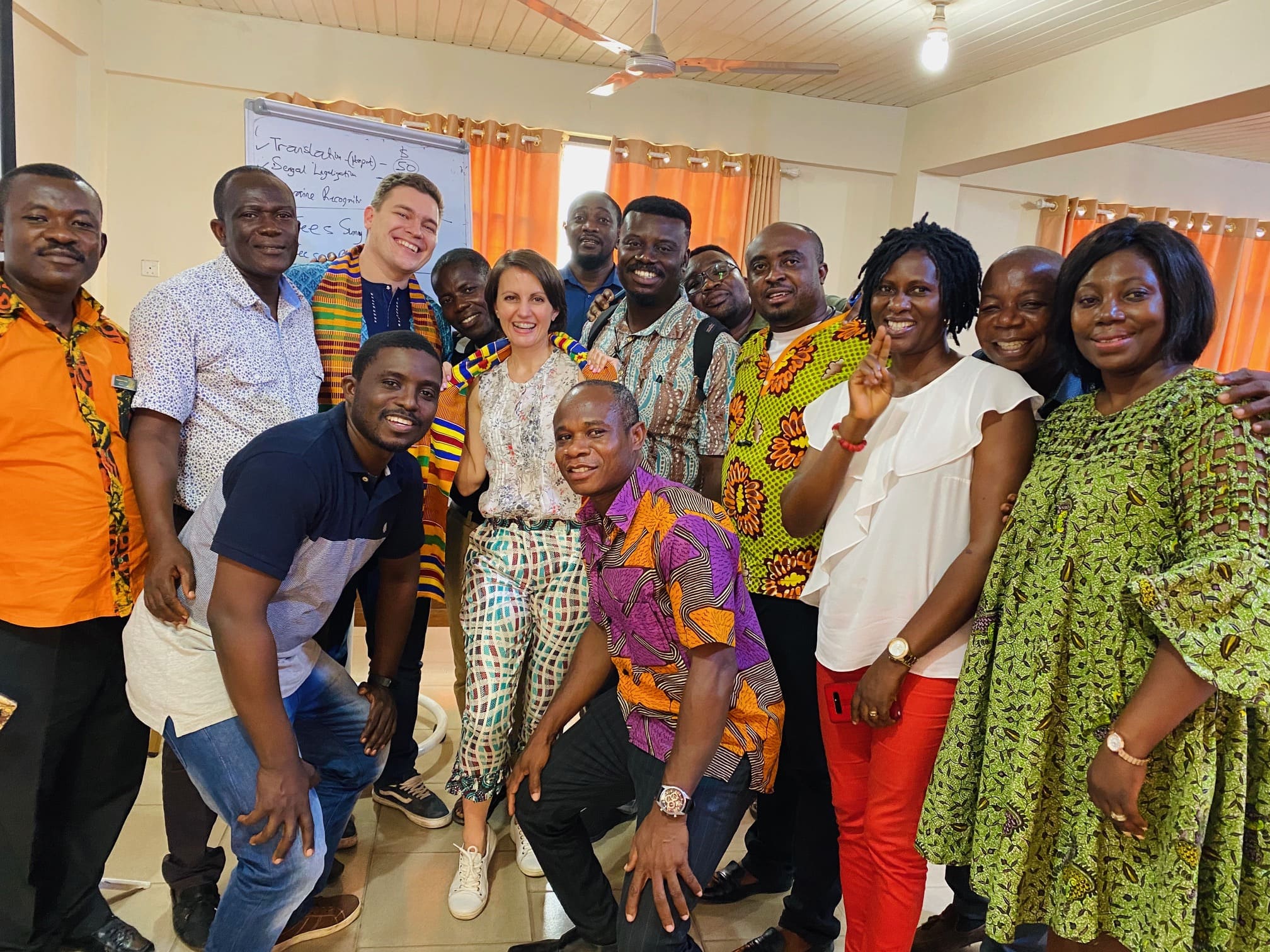 In the frame of cooperation project with Ghana Baptist University College Vice-director of ARI FEM for coordination of collaboration with foreign institutions and for work with international students, assistant of the Department of Management Tetyana Mayboroda and Head of the Department of Marketing Oleksii Lyulyov held set of trainings, presentations and lectures for the new post-graduate students from Ghana.
In the frame of cooperation project with Ghana Baptist University College Vice-director of ARI FEM for coordination of collaboration with foreign institutions and for work with international students, assistant of the Department of Management Tetyana Mayboroda and Head of the Department of Marketing Oleksii Lyulyov held set of trainings, presentations and lectures for the new post-graduate students from Ghana.
“It was the hottest week of February we have ever felt in our lives” – this is how our lecturers will remember their stay in Ghanaian city Kumasi, at partner university college campus on 22nd – 29th of February.
That was the first such experience of communication and teaching of foreign post-graduate students with visit to Ghana. Education process and discussions were very intensive and active: management of scientific projects, methodology of scientific research, trainings in modern tools of statistic data collection and processing, bibliographic information processing, algorithm of work with international reference databases Web of Science and Scopus, and more else.
Read more ...
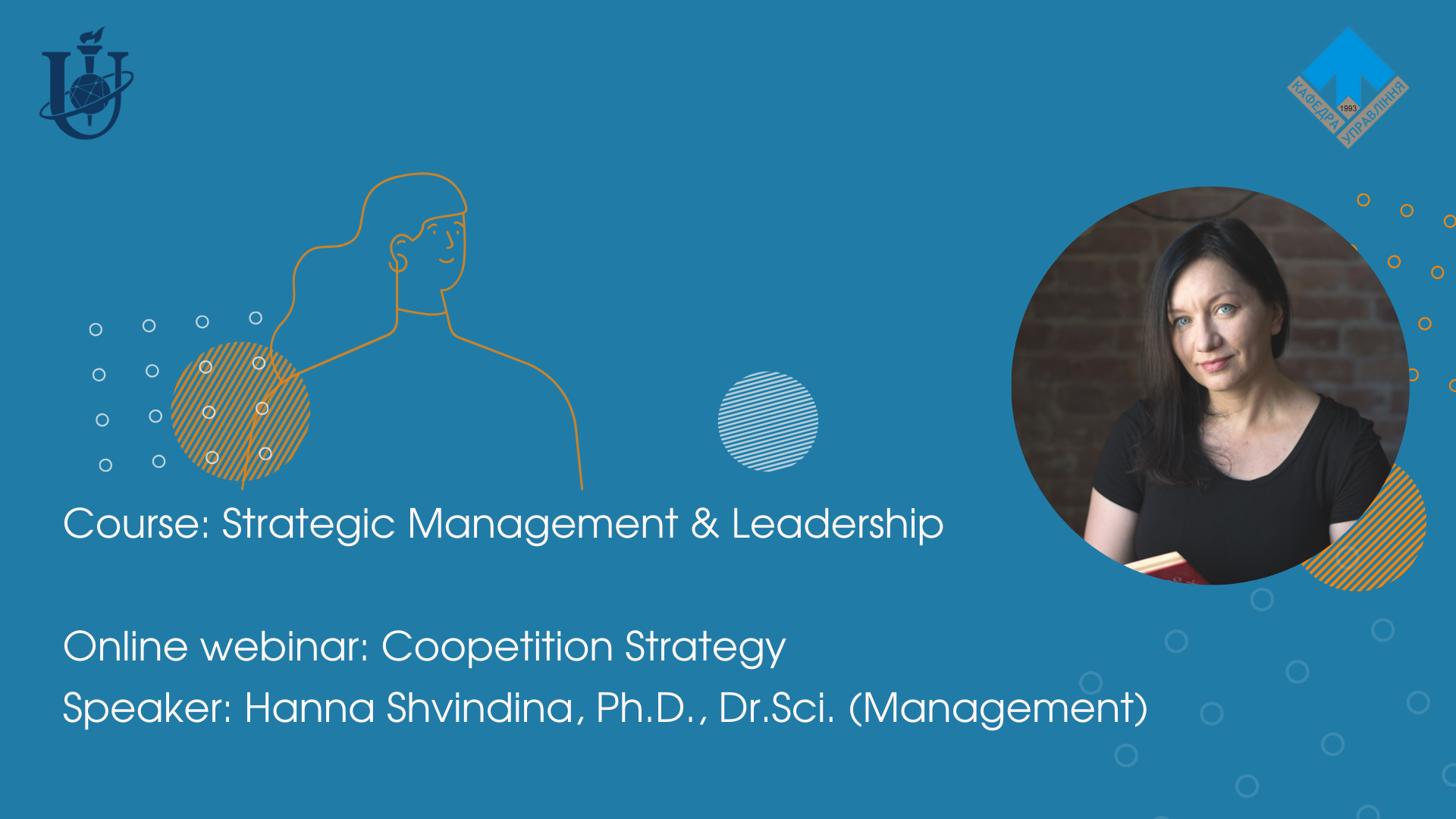 The new set of session in Strategic Management & Leadership re-launched the coming Thursday. During the next five weeks the set of webinar is planned to be accomplished in the most urgent topics of strategic management and decision-making. The partners of the project are RMIT (Australia), Whitefield Business School (Mauritius) and Sumy State University. The nest session is on 9th of April, starting at 13-25. It’s an opportunity to join the lecture via Google Hangouts Meet - https://meet.google.com/gfo-
The new set of session in Strategic Management & Leadership re-launched the coming Thursday. During the next five weeks the set of webinar is planned to be accomplished in the most urgent topics of strategic management and decision-making. The partners of the project are RMIT (Australia), Whitefield Business School (Mauritius) and Sumy State University. The nest session is on 9th of April, starting at 13-25. It’s an opportunity to join the lecture via Google Hangouts Meet - https://meet.google.com/gfo-

